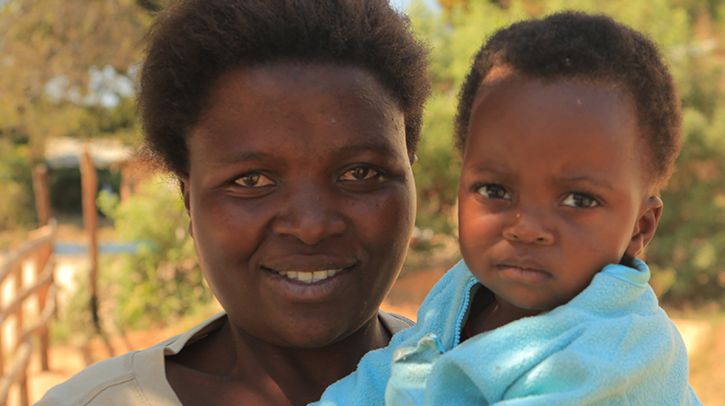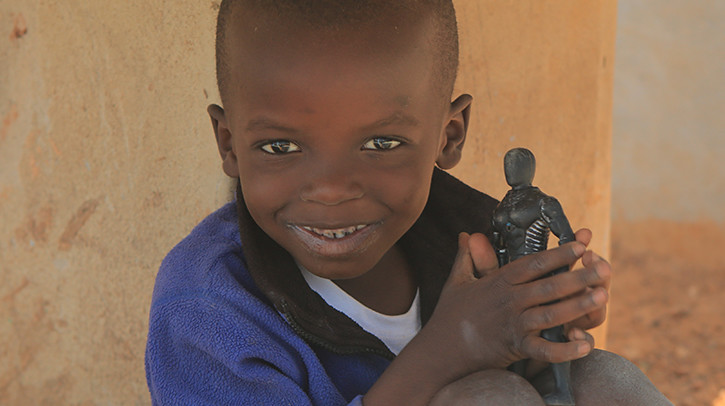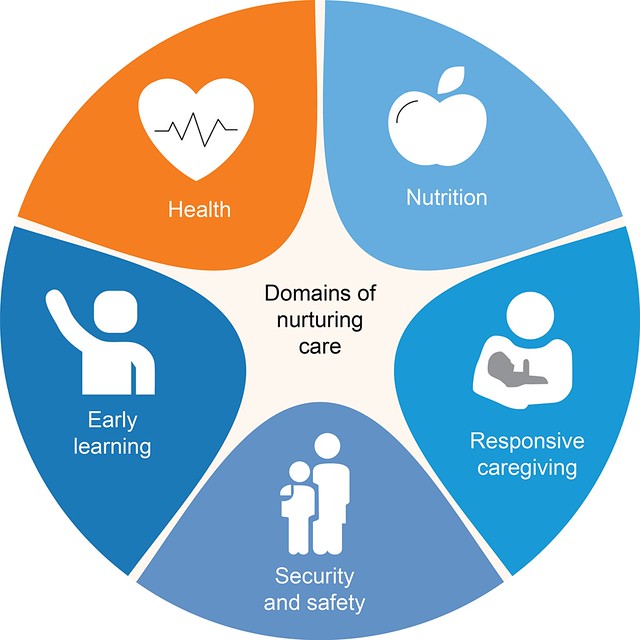Let the Children Come to Me

People were bringing even infants to him that he might touch them… Jesus called for them and said, “Let the little children come to me, and do not stop them; for it is to such as these that the kingdom of God belongs.”
— Luke 18:15-16 NRSV
In rural Zambia, mothers with babies on their laps sat in their parenting support and learning group meeting, while their toddlers actively toddled around. The adorable little faces and their actions were so captivating I was momentarily distracted from the business at hand, including questions I wanted to ask the parents during my visit to this Early Childhood Development (ECD) program community. This familiar Bible verse from the Gospels came to mind.
Facilitated by trained ECD volunteers, groups had been meeting monthly to talk about parenting and their young children’s development, especially nurturing care and early learning. Most small-scale farming families struggle to meet basic needs and many are also affected by HIV in some way. It was a challenge, yet they did try out new parenting practices.

What changed as a result?
Among the many discussions held as part of the program evaluation, these two insights, echoed by many other participants, stood out:
“Now I interact differently. I look into her eyes and make faces and sounds, and my baby smiles at me,” one mother recounted.
A father explained, “In the past, we just used to leave the children to play on their own. We now tell stories to our children, we sing to them and we play with them because we understand that before the child goes to school they are supposed to learn.”
Parents went on to describe immediate improvements they saw in their children and the joy they took in having a closer bond. These seemingly simple activities are actually producing a profound impact on the children’s development with multi-generational effects.

What the parents in remote Zambian communities shared, I later heard academic researchers presenting at a recent international conference Early Childhood Development in Uncertain Times: From Awareness and Evidence to Commitment and Action held in Dar es Salaam, Tanzania.Their studies confirmed that from birth to age three is the critical time for brain development and that specific parenting actions in the areas of communication and play are essential to children developing their full potential, leading to lifelong benefits.
It was great to see that evidence supported our ECD approach and we learned other ways to strengthen our program model. We had been invited to share results from our Zambian ECD program evaluation at the conference and found that other organizations’ project evaluations had validated similar program strategies.
Episcopal Relief & Development is currently scaling up parenting care and early learning as part of a holistic approach to early childhood development with two country partners, the Zambia Anglican Outreach Programmes and Anglican Development Services-Nyanza in Kenya.
Stepping back to view the program panorama that is now in its sixth year, I realized that Luke 18:15-16 was made visible. As dedicated ECD volunteers and parents gather to strengthen the love and care shown to young children, they become the embrace of Jesus and we are blessed to see and be part of the building of God’s kingdom across rural Zambia, western Kenya and beyond.
Journey to an integrated health Early Childhood Development center in Zambia in this video:

Dawn Murdock is the Director of Strategic Learning & Program Resources at Episcopal Relief & Development.
Images: Top— A mother and baby in Zambia; Middle 1— A smiling child in Zambia plays with an action figure; Middle 2 — Domains of Nurturing Care necessary for children to reach their developmental potential.
Nurture & Nourish the Earliest Learners


